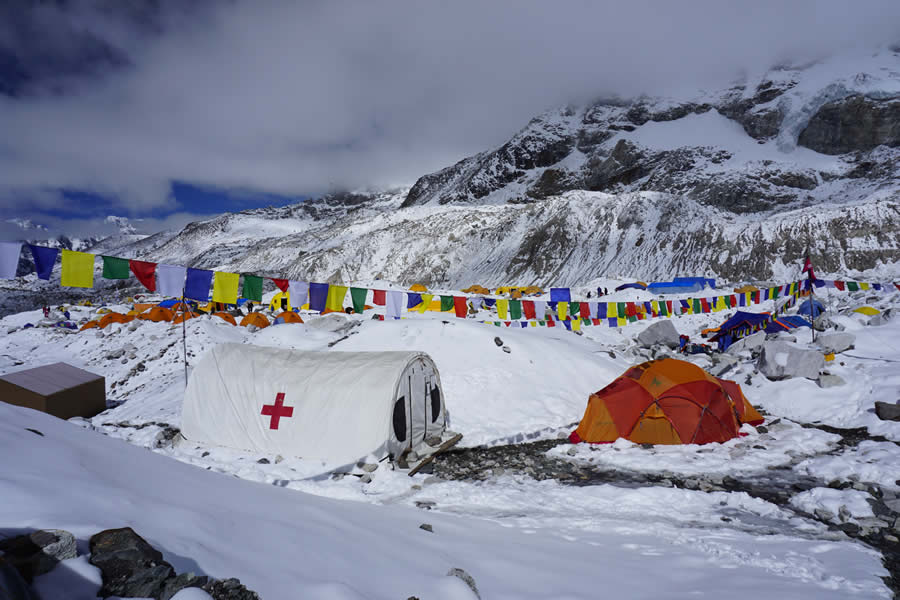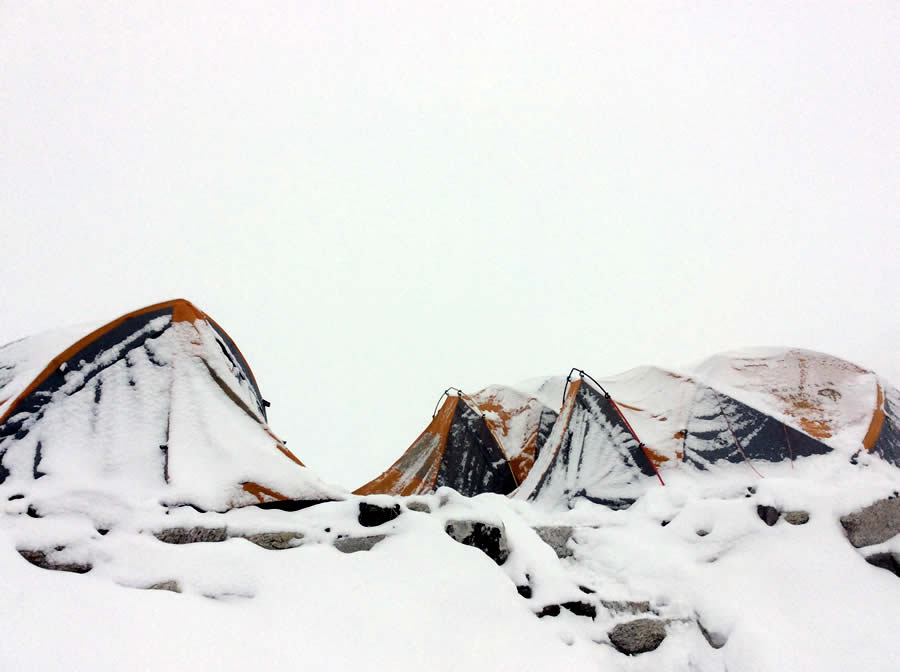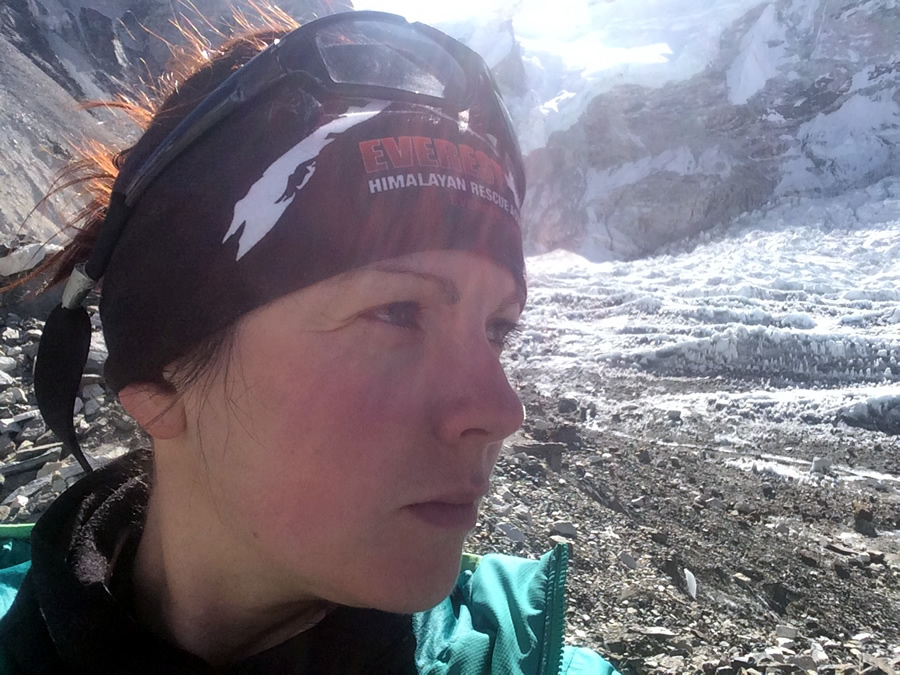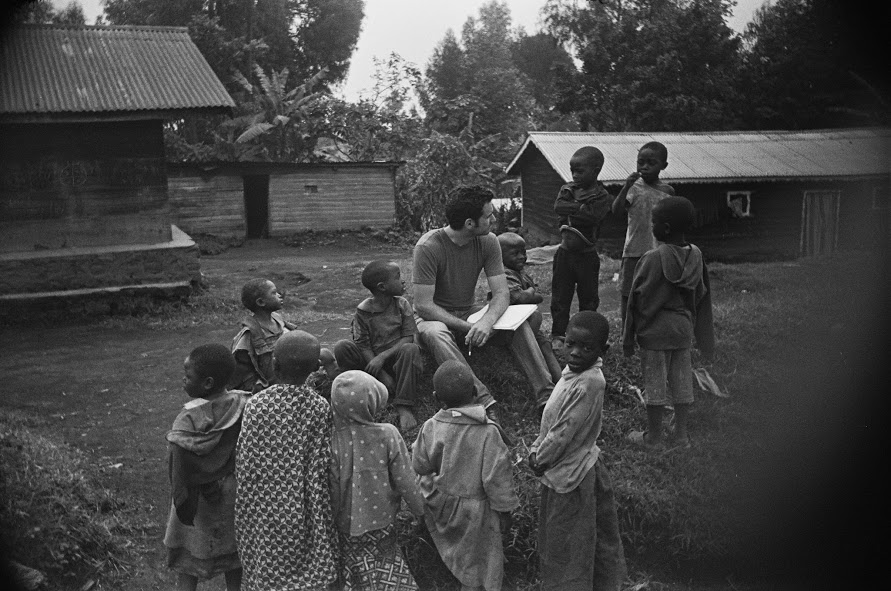"I saw it coming. I knew instantly that it was going to get us, to reach our camp. I knew, looking at it, that it also had the potential to…kill all of us in the camp; it was so huge and fast."
- Rachel Tullet, Everest ER
On April 25, 2015, Nepal was struck by a 7.8 magnitude earthquake, causing widespread destruction across the country. This earthquake also triggered a massive avalanche, which swept across Everest Base Camp. The avalanche caused devastation, damage, and injury across the camp.

The Everest ER medical clinic has been running at Mt Everest Base Camp since 2003, established by Dr. Luanne Freer. The clinic runs in association with the Himalayan Rescue Association, a Nepali NGO. This tent clinic provides health care to all those on the mountain, with funds from consultations with western climbers used to subsidise costs of health care to Sherpas and Nepalis working at Everest Base Camp.
In 2015, Everest ER was staffed by volunteer doctors Rachel Tullet and Megan Walmsley.
Rachel, 34, from the UK and based in Christchurch, New Zealand, works in the fields of emergency and wilderness medicine. Meg, 33, is from Australia and works in anesthesiology. Both were working at the Everest ER clinic at the time the avalanche struck. The avalanche hit the section of base camp where the clinic was located, wiping out their personal, dining and kitchen tents, and severely damaging the medical tent.
"A blast of wind, snow, ice and other debris swept through the clinic. The clinic walls were torn apart, the tent poles twisted and bent, the medicines were blasted out of their drawers and the clinic filled with snow," says Walmsley.

The Everest ER team and many others battled challenging conditions to provide medical assistance to over 80 patients following the avalanche, including 25 with serious to life-threatening injuries,
While the Everest ER team has received much praise for their heroic actions at the camp, they quickly defer the praise to the team around them that formed a community to provide this care.
Tullet says, "I just want to make it so clear that my story made it into the papers, but that was by no means extraordinary amongst other people's tales there, too. So, I think it's an enormous reflection on the strength and skills of our international community at Base Camp, in particular those of the expedition leaders, mountain guides, doctors and sherpas working there. In the face of such a tragedy, they could pull together and work so hard and work with us to save lives. So it was an absolute privilege to work there."
Rachel, who was thrown against a rock when the avalanche hit, suffered an injury to her knee. She would later stitch up her own leg but only after she, Meg, and others had helped all the others who had suffered injuries.

"It was enough to make it challenging to walk around... but honestly, I was so relieved to have come through that with relatively minor injuries on the scale of what everyone else went through."
We are humbled and honored to have Rachel and Meg speak of their experience - which they briefly shared on the Everest ER Facebook page - at our annual Summer Conference in Breckenridge, Colorado, July 10 - 15. Tullet and Walmsley's talk will focus on describing the avalanche, the immediate aftermath, disaster triage and practicalities of managing patients in this environment, as well as the personal challenges of being in and working in a disaster. Rachel has since returned to Nepal and also will provide an update on the current situation there. Their talk will be followed by a panel discussion featuring Rachel, Meg, Luanne and Doctor Paul Auerbach, cofounder of the WMS.
You do not want to miss this compelling tale of tragedy, community, and heroism.
Emergency Medicine residency training, an MPH from Columbia University's Mailman School of Public Health, and years of his practicing medicine in Africa prior to the fall of 2014 prepared Dr. Craig Spencer, long-time WMS member and FAWM candidate, to be part of the international emergency response to the Ebola outbreak in 2014. While we watched the epidemic unfold from the U.S. last year, Dr. Spencer was among a handful of American physicians on the ground in West Africa, working long grueling days in the stifling heat, trying to contain the deadliest Ebola outbreak to date. None of his experiences, clinical or other, could really have prepared him to receive his own diagnosis of Ebola shortly after returning home to New York City.
Ebola carries a 70 percent mortality rate in West Africa. It's difficult to imagine the silver lining in receiving such a diagnosis. In Dr. Spencer's case, that silver lining had much to do with being asymptomatic until well after he was on the ground in the U.S. What that meant was:
- Dr. Spencer could easily isolate himself at the point of becoming symptomatic, preventing spreading the infection. Not as easily done in West Africa.
- Dr. Spencer had immediate access to excellent modern critical care medicine
Over the course of 19 days spent in isolation at Bellevue Hospital, initially unsure whether he would survive, there was a lot of time to think. It quickly became international news that Craig was officially diagnosed with Ebola. Ill in the ICU, Craig received countless notes and gifts from friends, family, and perfect strangers. Some prayed for him. Some literally sent him written checks to help fight the epidemic (all money was returned, and the physical paper that notes and checks were written on were literally incinerated because they were opened in his isolated hospital room). Others sent their gratitude for the work that he had done. Others sent judgmental notes expressing their opinions about quarantine for returned healthcare workers from West Africa.

By the end of October going into early November, Craig was still in intensive care; however, the worst of the illness was over. It was clear with the exceptional care of the ICU staff at Bellevue that Craig would survive Ebola. He began to contemplate all of these responses to Ebola - both his illness and the epidemic. There was an oddly variable response from internationally recognized Public Health sectors resulting in not enough work forces on the ground to contain the disease. With the ongoing outbreak and Craig's immunity now through the roof, it soon became clear that he would return to West Africa to continue both clinical and epidemiological work to contain Ebola. By February he was back on the ground in Guinea. Partly because the politics and policies for health workers responding to the Ebola crisis had not changed, and to facilitate Craig's travel to and return from West Africa earlier this year, the U.S. Centers for Disease Control and Prevention wrote a letter confirming Craig's immunity and exemption from these same restrictions that in some cases hindered entire organizations from responding to the outbreak.
From the perspectives of his intimate involvement with Ebola as a healthcare provider on the ground, as a patient, as a returned healthcare worker in the center of a media frenzy while returning to his day job in the ED in NYC, and as an expert from the Global Health sector, Dr. Craig Spencer will share his insights on all of the above at the Wilderness Medical Society's annual summer meeting in Breckenridge on the evening of July 14. Please join us for this special presentation.